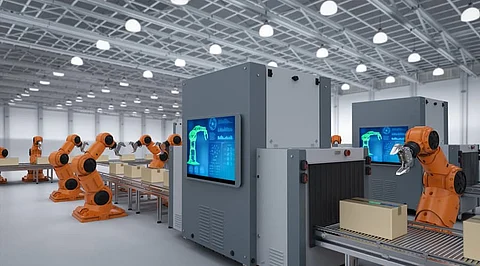

Artificial intelligence is not old news. According to Stanford's 2021 AI Index, the global corporate AI investment is at a record high of $67 billion. PWCs 22nd Global CEO Survey shows that 77% of Fortune 500 CEOs are planning to or have already started AI initiatives. With the increasing importance of artificial intelligence, all eyes are on data science to deliver substantial results.
The advantage that comes with artificial intelligence for businesses is common knowledge in the tech world. The 2020 McKinsey Global AI Survey states that AI is contributing more than 20% of EBIT (Earnings Before Interest and Tax) for an elite group of artificial intelligence practitioners. Additionally, these companies have bigger budgets to spend on artificial intelligence initiatives than their competitors. With this comes the ability to develop AI solutions that they require in-house, instead of depending on external suppliers.
As data science advances, the pressure for the field to deliver tangible results and live up to its hype increases. A significant yet understated role for the success of artificial intelligence products in the AI Product Owner (AI PO). Here's everything you need to know about AI PO.
Scrum framework, a popular agile development method defines the role of a product owner as someone who is responsible for maximizing the value of the scrum team. The scrum framework depends on the role of a product owner, scrum master, and developer. By this, we understand that a product owner creates a product vision, communicates the vision with the stakeholders, and creates the product backlog. The Scrum framework also dictates that a PO is required to have a business, user experience, technical and communication skills.
An extended, specialized role of a product owner is the role of an AI PO. AI POs inherit the duties of a general PO with the difference that the AI POs' work revolves around artificial intelligence-based products.
AI-powered products obviously differ from conventional software products. AI products use data to learn patterns without developer support. Unlike traditional software products, AI products improve on their own as and when the data keeps coming. Machine learning facilitates the building of products that were not possible to build before the emergence of AI like speech recognition devices, automating driving, etc. Because AI products hold such immense power, it is crucial for AI PO's to adjust their skills to adapt themselves.
Firstly, all AI PO's need to know everything about AI-based products, from how they work, their merits, and then pitfalls. Secondly, AI POs need to attentively monitor the predictions made by the AI models. Artificial intelligence is based on statistical assumptions, so their predictions need to be observed for uncertainty. AI POs should make it to a point to design AI applications to include human-decision making wherever necessary because one wrong prediction can have grave consequences. AI-based products are also dynamic. They identify how customers react to the prediction. This is how the system knows to make adjustments to data. Lastly, AI PO's need to understand that AI development differs from software development and its workflow. While traditional software development can follow a modular and structural approach, AI developments test various hypotheses and perform quickly. Understanding that machine learning development isn't as gradual as traditional software development is important to communicate the expectations with stakeholders.
Join our WhatsApp Channel to get the latest news, exclusives and videos on WhatsApp
_____________
Disclaimer: Analytics Insight does not provide financial advice or guidance. Also note that the cryptocurrencies mentioned/listed on the website could potentially be scams, i.e. designed to induce you to invest financial resources that may be lost forever and not be recoverable once investments are made. You are responsible for conducting your own research (DYOR) before making any investments. Read more here.
